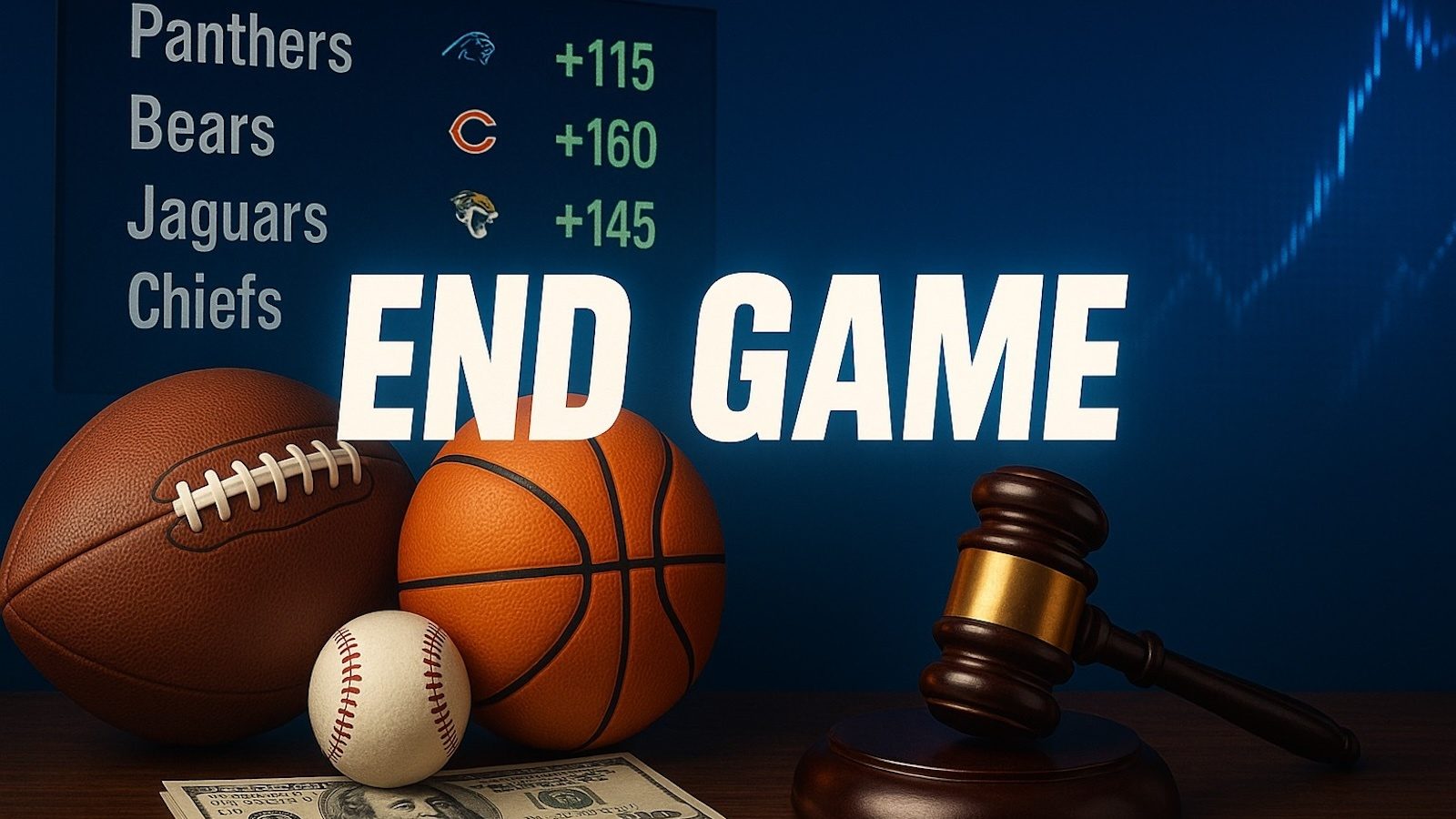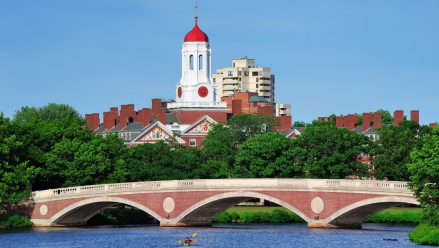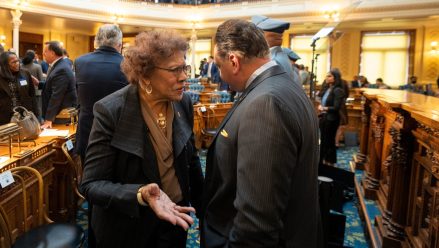The U.S. sports betting world moves quickly and unpredictably in 2025. In order to properly take stock of it all, we offer InGame’s “EndGame,” an end-of-week compilation of the top storylines, some overlooked items, and all the other news bits from this past week that we found interesting.
Time to step up or take consquences
During the “New Normal” tribal webinar Wednesday, Indian Gaming Association Executive Director Jason Giles took comments made earlier this year by MGM Resorts International CEO Bill Hornbuckle a step further.
“Just like Bill Hornbuckle said, we’re really laying the groundwork for a national framework by not doing anything” about prediction markets, Giles said, urging in a conversation about non-state regulated platforms and responsible gambling that the industry should take more concrete action. “Like in the UK where there are bet limits … nothing will kill your business faster.
“What about know-your-customer? You have to have a handle on it and show Congress that we have a handle on it. But the prediction markets, they’re everywhere. Polymarket is everywhere. For the New York City mayoral race, they show a Polymarket [odds]. It’s the gamblification of everything.”
There are multiple bills in Congress, including the GRIT and SAFE Bet Acts, that seek to create a federal framework for responsible and problem gambling, and more. Neither bill has gained traction.
In April, Hornbuckle addressed what could happen if the gambling industry doesn’t address the rise of prediction markets, which are beholden to far fewer regulations than state-regulated entities. “If we don’t handle this correctly, it’s going to be the cement that’s being poured for the federal government to enter the space,” Hornbuckle told iGB at the East Coast Gaming Conference. “It has always been, it needs to be and continues to be a states’ rights issue.”
Florio: Rams’ finish is gambling’s fault
Pro Football Talk’s Mike Florio is an unvarnished voice on the NFL’s neck-snapping change of perspective on legalized gambling since the fall of the Professional and Amateur Sports Protection Act in 2018. His take on why Eagles’ defensive tackle Jordan Davis scooped-and-scored after a blocked field goal secured a win over the Rams seems like a stretch, however.
Brant James
Michigan bill would bring back office pool
The office NCAA pool may be on its way to becoming legal in Michigan. Such social betting games — Super Bowl Squares and annual office March Madness pools among the most popular — are technically illegal in most states that have legal sports betting. But a Michigan state senator Sept. 3 filed a bill that would legalize the games.
SB 511 would “exempt a wager that was incidental to a bona fide social relationship and that met other circumstances from the current prohibition on gambling on the result of a race, contest, or game.” Such contests have long been part of the fabric of America, happening among friends, in offices, and at Super Bowl Sunday parties for decades.
Under Michigan law, those taking money for such contests could be fined up to $1,000. But if a contest is for 100 people or fewer, the buy-in is less than $25, no other prizes are offered, and all of the money is awarded as prizes, it would be exempt from the current law. The bill would also increase the amount of the fine to $5,000 if a contest is offered by an unregulated operator but exceeds caps.
Michigan’s legislature is in session year-round. The bill was assigned to committee but hasn’t had a hearing yet.
Kalshi deletes ‘college ambassadors’ post
An update on last week’s item on Kalshi seeking college ambassadors: The prediction market deleted the post last Friday evening, and an ambassador application form page on the Kalshi website now returns a “page not found” error.
Traditional sports betting companies’ efforts to partner with colleges — via deals with athletics departments — mostly ran into backlash and were short-lived.
PointsBet partnered with the University of Colorado’s sports teams in 2020, but three years later the university announced the end of the deal. Caesars agreed to deals with LSU in 2021 and Michigan State in 2022, but both deals were put to an end in 2023.
Kansas rep says wagering tax too low
Kansas Rep. Francis Awerkamp on Monday suggested that his state’s 10% betting tax rate is too low, per a 12 News report. The Kansas legislature legalized retail and digital sports betting in May 2022, and operators went live in September. Those in Kansas have laid down $6.9 billion in wagers since launch, and operators have paid the state $35.7 million in taxes.
But Awerkamp told a committee, “If you take a look at the percentage that Kansas gets, we’re one of the worst. There are all these scary risks about increasing tax rates, but we take a look at states all over, and they have much higher tax rates, and they seem to be doing just fine.”
Kansas is one of 11 states that allow digital sports with a tax rate of 10% or less. The cheapest states to do business in are Nevada and Iowa, both of which charge operators a 6.75% tax rate. Illinois and New York, both of which charge 50% or more to the biggest operators, are among the most expensive. Colorado and Missouri, set to go live Dec. 1, have a 10% tax rate.
Nationals close ballpark sportsbook
And another one’s gone, and another one’s gone.
The fad of in- or adjacent-venue retail sportsbooks continues to crash as the Washington Nationals announced this week that the BetMGM shop aside Nationals Park would close. Three years ago, the sportsbook became the first connected to an MLB stadium. Now it’s the latest in a series of closures.
The sportsbook stopped taking bets on Sept. 21.
Winning tickets can be cashed there until Sunday and thereafter must be mailed to: BETMGM MAIL IN TICKETS P.O. BOX 325 Jersey City, NJ 0730.
Brant James
CO water projects continue to benefit
When Colorado voters passed Proposition DD in 2019 that legalized sports betting, the idea was that tax proceeds from wagering would fund state water projects. Initially, the goal was $10 million per year, with a maximum of $29 million. But five years after launch, wagering has been a boon to the state’s water projects, and Tuesday the Department of Revenue announced that it will send $33 million to the Colorado Water Conservation Board.
Per the DoR press release, bettors in Colorado wagered $6.3 billion in FY 2024-25, $287 million more than FY 2023-24 and 130% more than FY 2020-21 when wagering launched. Tax dollars support water infrastructure, ecosystem restoring, conservation efforts, and more. The DoR also funneled $1.7 million to its Hold Harmless Fund, which reimburses the state’s casinos and local governments where casinos are for “financial impacts related to the statewide expansion of gaming.”
Check it out …
The Tax Foundation has sounded the alarm about how high taxes on gambling don’t benefit anyone in the long term. Also, on Monday, Justin Leventhal of the American Consumer Institute wrote in The Hill, “If policymakers truly care about consumer protection, they should resist the temptation to grab every possible dollar from the industry.” Read here for his arguments against overtaxing sports betting and gambling.
ICYMI on InGame
SBA ‘YES Pledge’ For Legal CA Wagering Circulating. CNIGA Calls It A ‘Corporate-Driven Maneuver’
OBBBA: As Gambling Armageddon Nears For Some, ‘Regulatory Arbitrage’ Looking More Attractive
‘South Park’ Introduces Prediction Markets To Mainstream America
Kalshi’s Spreads, Totals Contracts Still Lag Well Behind Moneylines After Robinhood Integration
Kalshi Lawyer Josh Sterling Reportedly Vetted For CFTC Chair Role
Five States With NFL Teams That Are Missing Out On Sports Betting Tax Revenue
Lottery Giant Allwyn Buys Majority Of PrizePicks In Record Fantasy Acquisition
Adam Wexler on PrizePicks Now, Then
Remembering Dave Sharapan — Beloved Bookmaker, Sports Betting Media Personality






